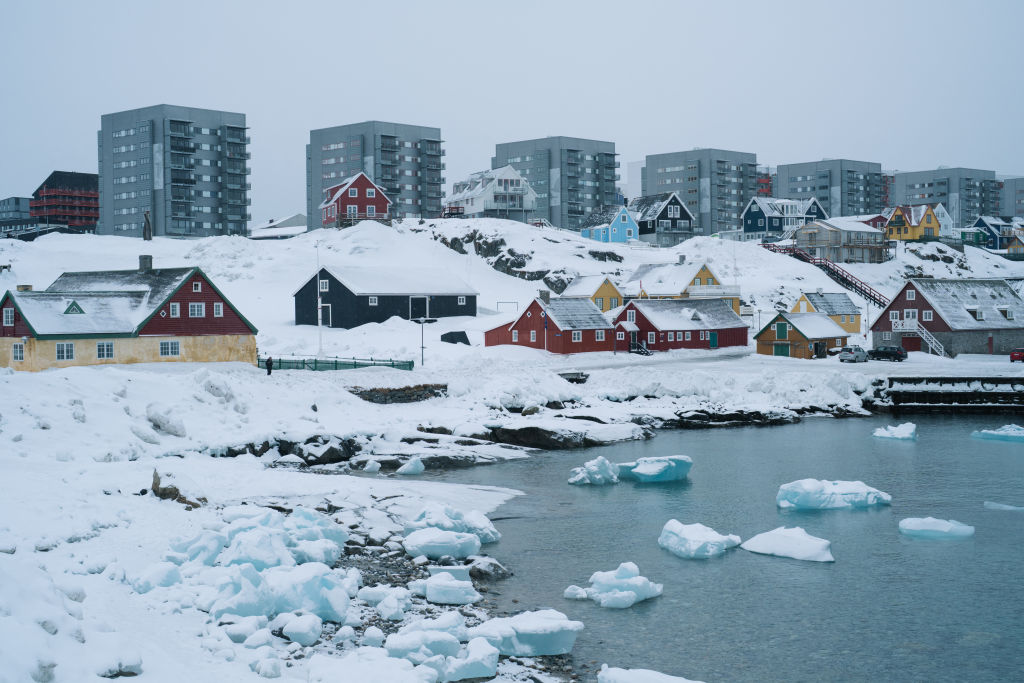This afternoon, Vice President J.D. Vance is set to touch down in Greenland after deciding to join his wife Usha on her trip there. In a video on X, he explained that:
‘There is so much excitement about Usha’s visit to Greenland this Friday that I decided that I did not want her to have all that fun by herself, so I am going to join her. I’m going to visit some of our guardians in the Space Force on the northwest coast of Greenland and also just check out what is going on with the security there of Greenland.’
Vance accused previous US administrations and Denmark of having ignored Greenland for too long and argued that as other countries threatened to use its territories and waterways to endanger the US and Canada, President Trump wanted to ‘reinvigorate’ the security of the country. This, according to Vance, is important for ‘protecting the security of the entire world.’
Gross exaggerations aside, Vance is largely right. Greenland’s strategic location along the shortest air and shipping routes between North America, Europe and Asia; its resource wealth that includes some of the world’s largest rare-earth deposits; and its importance as the ‘roof of the world’ for monitoring, surveillance and early warning missile systems, make it (ironically) one of the hottest geopolitical locations in the world. We are entering an Arctic Century – where developments in Greenland and the wider Arctic will impact every aspect of our lives – and a defining feature of this will be Greenland’s prominence.
For the US, Greenland is both an opportunity and a vulnerability. It is understandable that it wants to protect its northern flank from Russian and Chinese activity. So is its wish to safeguard its military presence in Greenland. It does not want a future government in Greenland to pull away from its longstanding defence arrangements with the US.
Far from being irrational, Trump’s fixation on Greenland shows shrewdness and foresight. That is why it is inexplicable that Trump has chosen the most unreasonable and highest-risk way to pursue his reasonable aims. The White House’s threat of annexation has not forced Greenland into a position of submission and supplication as Trump might have hoped. Instead, it has united the country in defiance.
The lesson here is that heaping disrespect on a country by saying you will acquire it ‘one way or the other’ is destined to make future overtures less charming and more offensive. Exploiting grievances that Greenland may have with Denmark to argue for its takeover by the US – replacing one colonial overlord with another – comes across as simple colonial expansion. Misleading the domestic American electorate by misrepresenting the views of Greenlanders – oh, how they wish to be American! – is taking a page out of Russia’s handbook on how to spread misinformation. It is disrespectful to Americans and Greenlanders alike.
J.D. Vance may believe that his trip to Greenland this week is part of a US charm offensive, but it is nothing of the sort. If anything, it is ill-timed and deeply insensitive. Greenland only had a national general election on 11 March, only just formed a coalition government yesterday, and it has local council elections coming up on 1 April. Demokraatit, a party formerly in opposition, won the most votes in its general election but not enough to form a government. Normally, Danish officials stay well away from Greenland after an election, so they can’t be accused of interfering in the coalition process. This is why Vance’s high-level visit to Greenland without any invitation or involvement of Greenlandic or Danish officials has gone down so badly in Nuuk. Local politicians have described the visit as foreign election interference, and the likely incoming Prime Minister – Jens-Frederik Nielsen – lambasted it as ‘disrespectful’.
Meanwhile, in the Greenlandic newspaper Sermitsiaq, outgoing Prime Minister Mute Bourup Egede argued:
‘The very aggressive American pressure against the Greenlandic community is now so serious that the level cannot be raised any higher. Standing together in Greenland has not helped, speaking out has not helped, and the diplomatic attempt at dialogue is in vain.’
He appealed to Greenland’s international allies to come forward with their support. On Tuesday, Danish MP Rasmus Jarlov of the Conservative People’s party called on Greenland and Denmark to cooperate in shutting down the US Consulate in Nuuk, saying it is undermining Greenlandic and Danish interests – and was worse than the Russian Embassy in Copenhagen.
What makes this backlash so regrettable is that the US has enjoyed extensive defence privileges in Greenland since 1941, with Greenland acting as a trusted partner and steadfast ally through the second world war and the Cold War. Recent initiatives such as reestablishing a US Consulate in Nuuk, extending USAID funding to Greenland, and changing the name of the northernmost US military installation, Thule Air Base, to Pituffik Space Base have all improved relations. US firms were even beginning to gain access to Greenland’s mining arena – which has been dominated by British, Australian and Canadian players.
The task before Trump was simple: strengthen cooperation and increase US investment, while cultivating trust and goodwill and respecting the right of Greenland to self-determination. Alliance, not conquest. Instead, Trump has embarked on a campaign of intimidation and harassment. This has only turned Greenlanders against the US.
America’s truest friends today are likelier to be found in London and Nuuk than in DC. If Trump is smart enough to recognise Greenland’s strategic importance in a way few have, he is smart enough to know that there is no greater way to weaken America’s hand and hurt its interests than by turning its back on its allies. Its allies are the chief advantage it has, after all, over its adversaries like Russia and China.
Vance should keep this in mind as he spends time in Greenland this week. If America truly wants to be the leader of the free world, rather than threatening its allies, it should treat them with respect.







Comments